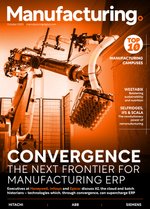From its inception, Weetabix, the low-in-sugar and high-in-fibre beloved British breakfast food has embodied sustainability and nutrition.
First produced in a disused flour mill in Burton Latimer, reusing vital manufacturing infrastructure, Weetabix was sold nationwide after World War Two to provide nutritional, wholegrain goodness for the recovering nation. During the 50s, 60s and 70s Weetabix exploded in popularity as a healthy ingredient that went beyond breakfast, expanding beyond the UK and releasing new products like Alpen.
Since then the brand has introduced protein drinks, oat alternatives and chocolate cereal renditions- all powered by natural, responsibly sourced wheat and loyal engagement with local farmers.
Weetabix has over 150 local farmers participate in its Growers Group scheme which helps to farm over 75,000 metric tonnes of wheat every year across more than 4 million acres.
In 2023, 791 million metric tons of wheat was consumed globally. Wheat is vital for human nutrition, providing starch, and energy along with being the leading source of vegetable proteins (with a protein content of 13%) in human food.
Weetabix has built its business on the importance of wheat- and it understands its future is under threat. While wheat yields in the UK have been largely resilient to weather-related changes over the past thirty years, the future security of the nation’s most widely grown food crop is uncertain.
Extreme wet and dry conditions due to climate change can impact production. India’s wheat harvest for example has shrunk in the past two years due to severe heat waves, putting farmers' livelihoods and the nation’s food supply in jeopardy.
With this in mind, Weetabix has fortified its manufacturing commitments to sustainability and nutrition. Leading this transformation is Rui Ascensao, Head of Manufacturing at Weetabix.
Starting his current role in 2023, Rui has an expert background in industrial management and engineering. He has occupied senior roles in manufacturing and operations at some of the biggest manufacturers in the world- from Mondelēz International to Procter & Gamble.
Manufacturing Digital spoke with Rui about his career history and current role, learning how Weetabix is enhancing sustainability and nutrition throughout its manufacturing process to ensure the future of people, the planet and one very important crop.
What brought you to Weetabix?
It is kind of a funny story. I was working up in Newcastle for a firm making perfume and hair dye, with my wife working locally as a nurse at the time. The wider company I was working for sold their stake in their beauty business and the plant I worked at was announced to be closed down.
It just so happened that on the very same day of the announcement, I was contacted by a recruiter for another manufacturing job in Sheffield, where I worked my way up to be Plant Director- talk about when one door closes another one opens!
From there I moved to Weetabix in 2023 to be Head of Manufacturing and have been here ever since. I’ve always had an interest in manufacturing, but it’s the people that make my work so rewarding.
In manufacturing, you are working as a team towards a common goal, shoulder-to-shoulder each day to provide consumers with the products they love. It is that sense of teamwork and shared achievement that I find especially fulfilling.
How has manufacturing at Weetabix changed?
It’s no secret that manufacturing over the last few years has shifted substantially with greater emphasis being placed on automation to facilitate greater speed and efficiency in most processes.
But, greater automation has also brought with it a new mindset and sets of skills for workers. Operators are now considered to be machine owners; they are experts who know the machines they operate inside out and have true ownership of the production lines.
The increased emphasis on automation has brought the need for real-time information, be it around operational operating efficiencies and productiveness, or the cost and waste incurred throughout the manufacturing process.
Enabling our people to have their hands on accurate real-time information is a journey that depends both on the technologies we deploy and adhering closely to process so we ensure the data we generate is accurate.
We continue to pay ever-increasing attention to sustainability in the way we manufacture. The ‘Operational Responsibility’ pillar of our Weetabix sustainability strategy pushes us to constantly seek ways to improve efficiency, reduce the impact of what we do and ensure our workers are well looked after.
Biggest challenge in food manufacturing?
I think the biggest challenge at Weetabix is currently the diversity of quality requirements and standards we need to follow.
Whilst I wholeheartedly agree with the purpose of such regulations and standards, we ship a number of products all over the world and this means we have to ensure compliance across a number of states and territories, whilst maintaining the quality standard they expect to see from a much-loved breakfast brand like Weetabix.
How important is nutrition to Weetabix?
Since the beginning of the Weetabix Food Company, our ambition has been to nourish the nation with tasty, nutritious breakfasts.
Today we offer a broad range of great quality products in an array of formats developed to meet the varied breakfast needs and tastes of modern consumers.
The overwhelming majority (99%) of our products do not contain high levels of saturated fat, sugar or salt, offering people a whole variety of healthy choices to start their day.
We also want to play a positive role in inspiring and supporting efforts across the wider food industry to improve the nutritional profile of breakfast cereals.
How does Weetabix enhance nutrition operationally?
At Weetabix, like many other cereal manufacturers, the name of the game is to take wholegrains and produce great tasting products. We do this using traditional approaches such as pressure cooking, baking and toasting to unlock the goodness held in grains such as wheat or oats, which would be indigestible without some form of basic processing.
Throughout our manufacturing process we ensure that products are carefully enhanced to deliver nutrients, fibre and protein. We do all of this whilst minimising the amount of free sugars, salt and saturated fats to ensure those consuming our cereals are provided with a healthy breakfast to start their day.
What’s your take on sustainability and circularity across industries?
We know progress on sustainability remains important to all our stakeholders, from employees and farmers through to consumers and local communities. This is why we are focused on providing tasty and nutritious products that help nourish the nation in a sustainable way.
Our ‘Change for Even Better’ strategy draws together initiatives under a clear vision, supported by four key pillars of action – Sourcing Responsibility, Product Responsibility, Operational Responsibility and Social Responsibility.
We have made steady progress over the past year, continuing to improve performance and looking for new opportunities to strengthen our approach. I am proud to say our manufacturing team plays a key role in helping drive progress across these pillars.
How does sustainability impact your manufacturing process?
We see a key aspect of operating sustainably as using the minimum amount of resources as efficiently as possible, without increasing waste.
There would be no benefit to having the most environmentally sustainable packaging if it can’t run on our machinery efficiently or it increases waste. This encourages our packaging and manufacturing team to drive change in the right way.
For example, using thinner carton board is better for the environment but must not cause an increase in jams on our machinery, or damage in the supply chain, so we must work together to find engineering solutions to run these new materials.
We are currently in the process of completing projects to significantly reduce the amount of plastic we use at Weetabix. However, this does also present challenges in achieving good seals in order to keep the product inside safe and fresh.
This is another situation where the manufacturing teams use their expertise to adapt equipment so that we can maintain quality and standards of production.
To read the full story in the magazine click HERE
**************
Make sure you check out the latest edition of Manufacturing Digital and also sign up to our global conference series - Procurement & Supply Chain 2024 & Sustainability LIVE 2024
******
Manufacturing Digital is a BizClik brand.



